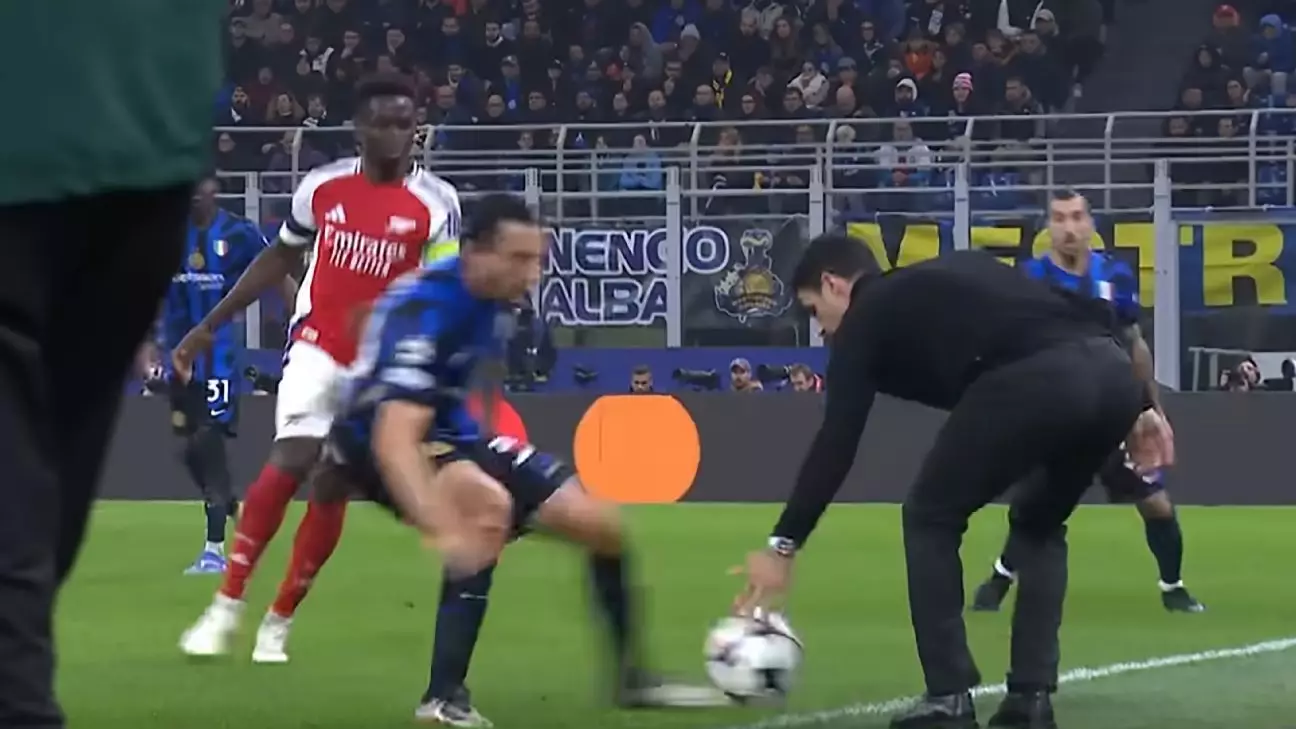The international governing body responsible for the laws of football, the International Football Association Board (IFAB), is on the verge of implementing significant changes following a controversial incident involving Arsenal’s head coach, Mikel Arteta, during a Champions League match against Inter Milan. Arteta’s actions during the game, where he inadvertently interfered with the ball that was still in play, have sparked a debate about the appropriate disciplinary response for coaches in similar situations. This incident acts as a catalyst for a reevaluation of existing rules concerning coaches’ conduct on the sidelines.
During the match at the San Siro, Inter’s Matteo Darmian attempted to play a ball heading for the sidelines. Before it was out of bounds, Arteta intervened and touched the ball, a move that the Laws of the Game penalize as an offense warranting a red card. However, the referee, Istvan Kovacs, opted for a yellow card instead. This anomaly reflects a broader issue of inconsistency in officiating, particularly regarding managerial behavior on the field. Observers have noted that in similar cases this season, managers like Carlos Corberán of West Bromwich Albion and Derek McInnes of Kilmarnock were dismissed for touching the ball. Arteta’s instance demonstrates a need for clarification surrounding these regulations.
Recognizing the confusion surrounding coach involvement during gameplay, IFAB has convened to propose a pivotal change to the rules. The primary suggestion is that if a coach intervenes with the sole intention of facilitating a quicker resumption of play, a caution, or yellow card, would be more appropriate than an automatic red card. This decision stems from the notion that coaches aim to support the flow of the match rather than undermine it. The proposed alteration, set for discussion at IFAB’s Annual General Meeting planned for March 1, aims to cultivate a more understanding approach toward coaches, aligning disciplinary measures with intent rather than strict adherence to potentially excessive punishments.
In addition to addressing coaching conduct, the IFAB is also considering a revision to the dropped ball rule. Currently, teams benefit from a dropped ball following an accidental interference by the referee, retaining possession even if the ball deflects incidentally toward an opposing player. However, the new proposal recommends that if a misdirected pass is obviously going to the opposition, they should instead be awarded the dropped ball. This adjustment aims to foster fairness and sportsmanship, ensuring that teams don’t unduly benefit from unintentional referee interference.
As these proposals move closer to approval, football stands on the brink of significant changes that could enhance the integrity of the game. By reassessing the penalties imposed on coaching staff and refining rules around game restarts, IFAB is working towards creating a more balanced and just playing environment. These adjustments, if enacted, reflect a commitment to evolving the game and responding to the insights and experiences gained in modern football. As we await final decisions, one thing is clear: the future of coaching behavior and game management looks promising, with an emphasis on intention and fairness taking center stage.

